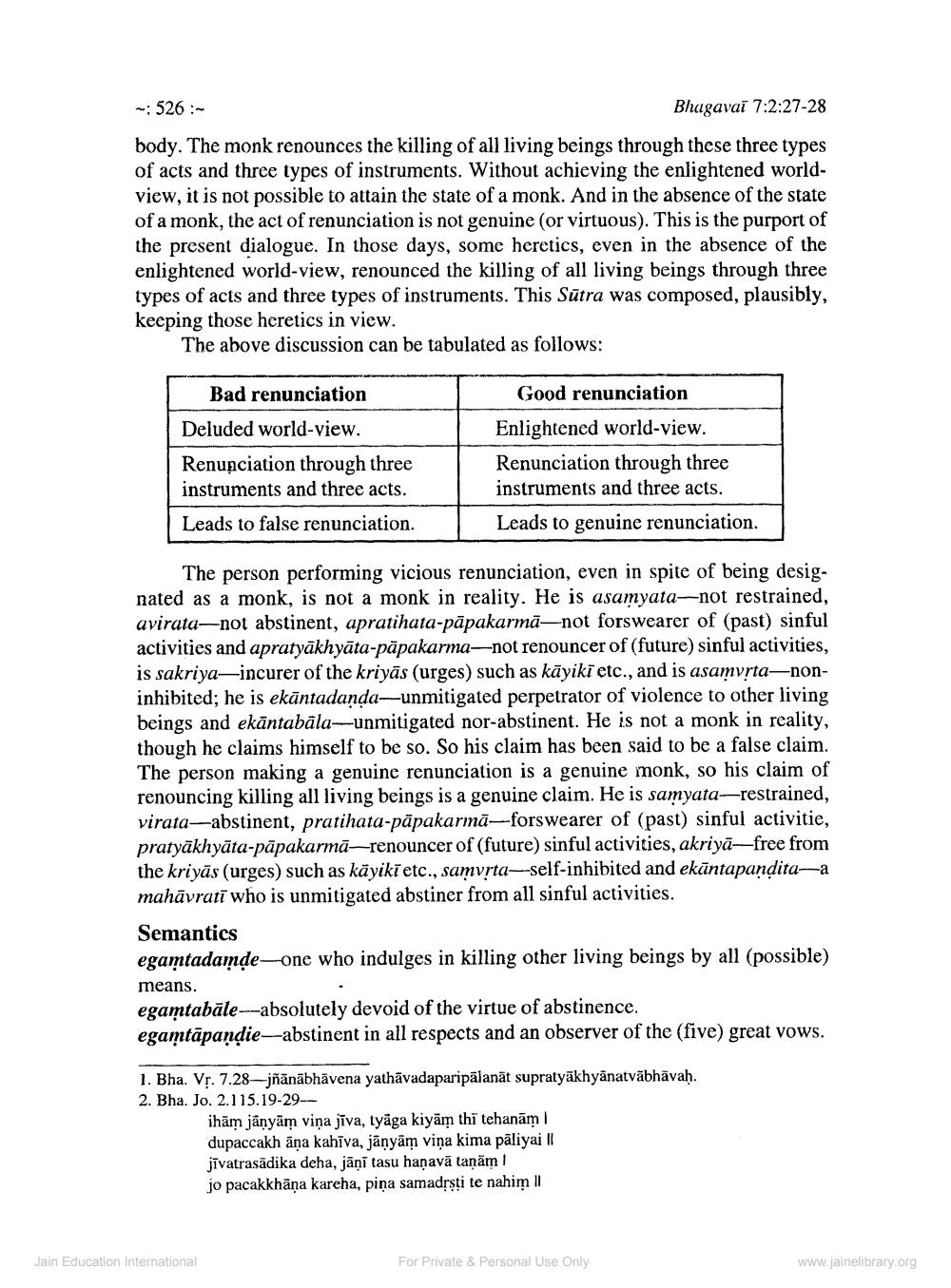________________
- 526 :
Bhagavai 7:2:27-28
body. The monk renounces the killing of all living beings through these three types of acts and three types of instruments. Without achieving the enlightened worldview, it is not possible to attain the state of a monk. And in the absence of the state of a monk, the act of renunciation is not genuine (or virtuous). This is the purport of the present dialogue. In those days, some heretics, even in the absence of the enlightened world-view, renounced the killing of all living beings through three types of acts and three types of instruments. This Sūtra was composed, plausibly, keeping those heretics in view.
The above discussion can be tabulated as follows:
Bad renunciation
Good renunciation
Deluded world-view. Renunciation through three instruments and three acts. Leads to false renunciation.
Enlightened world-view. Renunciation through three instruments and three acts. Leads to genuine renunciation.
The person performing vicious renunciation, even in spite of being designated as a monk, is not a monk in reality. He is asamyata—not restrained, avirata—not abstinent, apratihata-pāpakarmā—not forswearer of (past) sinful activities and apratyākhyāta-pāpakarma—not renouncer of (future) sinful activities, is sakriya—incurer of the kriyās (urges) such as kāyiki etc., and is asamvrta—noninhibited; he is ekāntadanda—unmitigated perpetrator of violence to other living beings and ekāntabāla-unmitigated nor-abstinent. He is not a monk in reality, though he claims himself to be so. So his claim has been said to be a false claim. The person making a genuine renunciation is a genuine monk, so his claim of renouncing killing all living beings is a genuine claim. He is samyata--restrained, virata-abstinent, pratihata-pāpakarmā—forswearer of (past) sinful activitie, pratyākhyāta-pāpakarmā-renouncer of (future) sinful activities, akriyā—free from the kriyās (urges) such as kāyiki etc., samvrta-self-inhibited and ekūntapanditama mahāvrati who is unmitigated abstiner from all sinful activities. Semantics egamtadamde-one who indulges in killing other living beings by all (possible) means. egamtabāle--absolutely devoid of the virtue of abstinence. egamtāpandie--abstinent in all respects and an observer of the (five) great vows.
1. Bha. Vr. 7.28-jñānābhävena yathāvadaparipālanāt supratyākhyānatvābhävah. 2. Bha. Jo. 2.115.19-29
iham jänyām viņa jīva, tyaga kiyām thi tehanam dupaccakh āņa kahīva, jānyām viņa kima pāliyai Il jīvatrasädika deha, jāņi tasu haņavā tanam ! jo pacakkhāņa kareha, pina samadrsti te nahim Il
Jain Education International
For Private & Personal Use Only
www.jainelibrary.org




